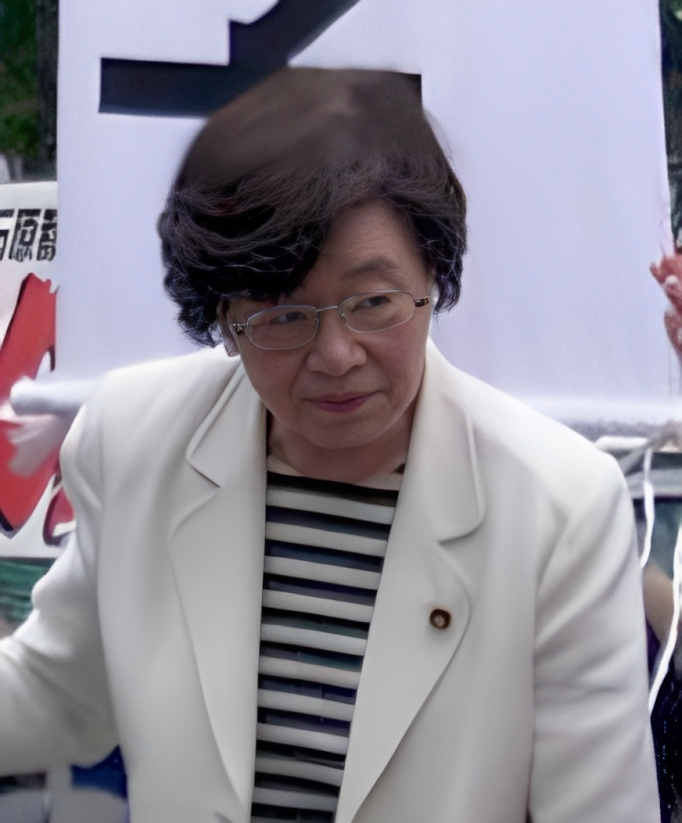Takako Doi
Takako Doi ( Japanese 土井 た か 子 Doi Takako , actually 土井 多 賀子 ; born November 30, 1928 in Kobe ; † September 20, 2014 ) was a Japanese politician and opposition leader.
Doi studied law at Dōshisha University . In 1969 she ran for the Socialist Party of Japan (SPJ) in the 2nd constituency of Hyōgo prefecture successfully for the lower house and was then re-elected eleven times. She was heavily involved in gender equality issues and advocated the signing of the Convention on the Elimination of All Forms of Discrimination Against Women in Parliament .
From 1986 to 1991 Doi was chairman of the SPJ. Under her leadership, the party modernized itself and gave up radical positions. From 1993 to 1996 Doi was President of the House of Commons. After the devastating defeat in the general election in 1996 , in which the SPJ lost its position as the second strongest party, Doi took over the party chairmanship again. In the same year the SPJ renamed itself the Social Democratic Party (SDP), but never recovered and continued to lose ground in favor of the Democratic Party .
In the 2003 general election , the SDP dropped to 6 seats; Controversial statements by Doi about North Korea in connection with the kidnapping issue had also massively damaged the party. Doi herself was elected on the proportional representation list, but lost her constituency. In November 2003, she took responsibility for the state of the party and resigned as chairperson, succeeding Mizuho Fukushima .
Doi has not been in parliament since the 2005 election, and in 2006 she became honorary chairman of her party.
Takako Doi died on 20 September 2014 at the age of 85 years at a pneumonia .
Web links
Individual evidence
- ↑ 土井 た か 子 氏 が 死去 女性 初 の 衆院 議長 ( Japanese ) Retrieved September 28, 2014.
| personal data | |
|---|---|
| SURNAME | Doi, Takako |
| ALTERNATIVE NAMES | 土井 た か 子 (Japanese); 土井 多 賀子 (Japanese) |
| BRIEF DESCRIPTION | Japanese politician |
| DATE OF BIRTH | November 30, 1928 |
| PLACE OF BIRTH | Kobe |
| DATE OF DEATH | 20th September 2014 |
